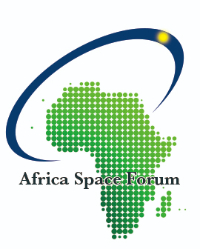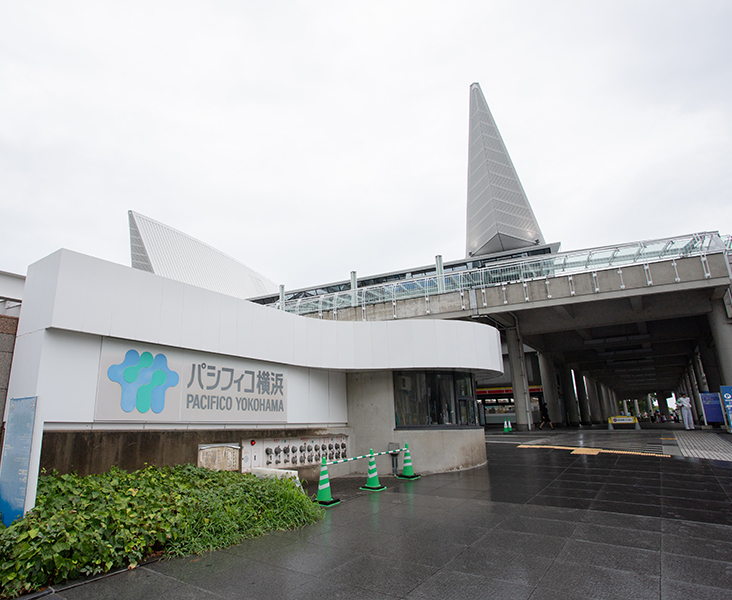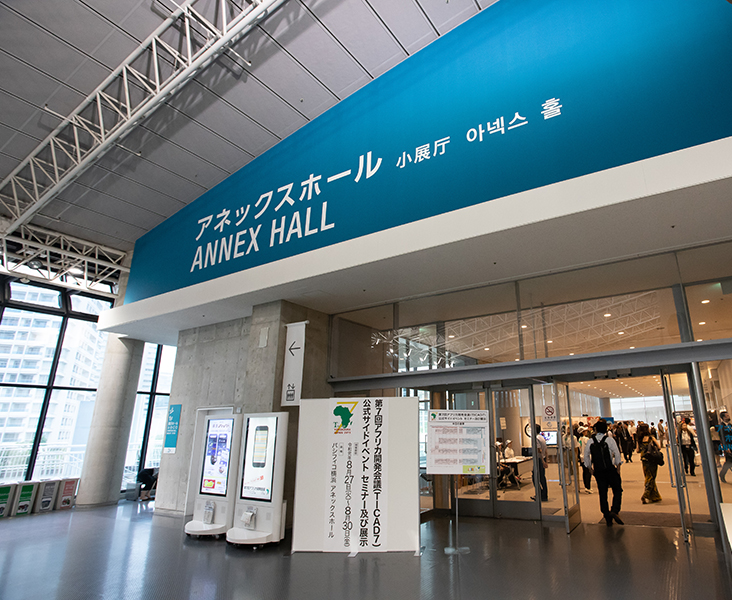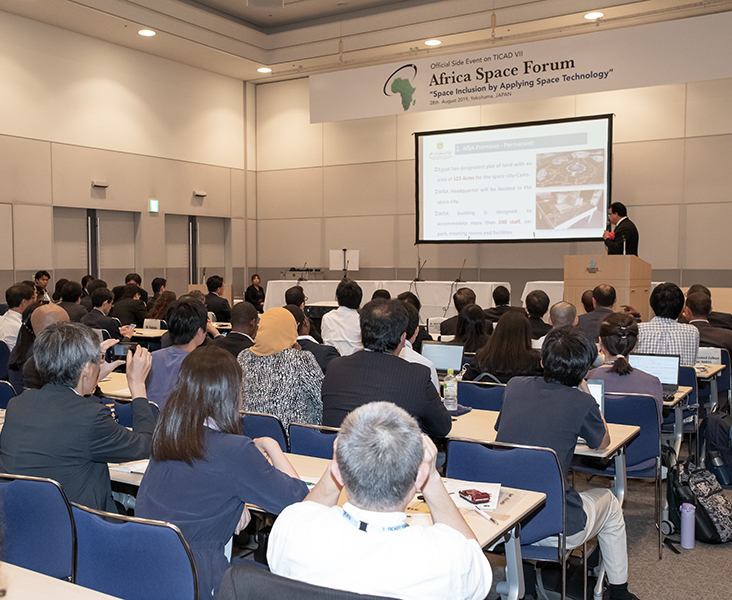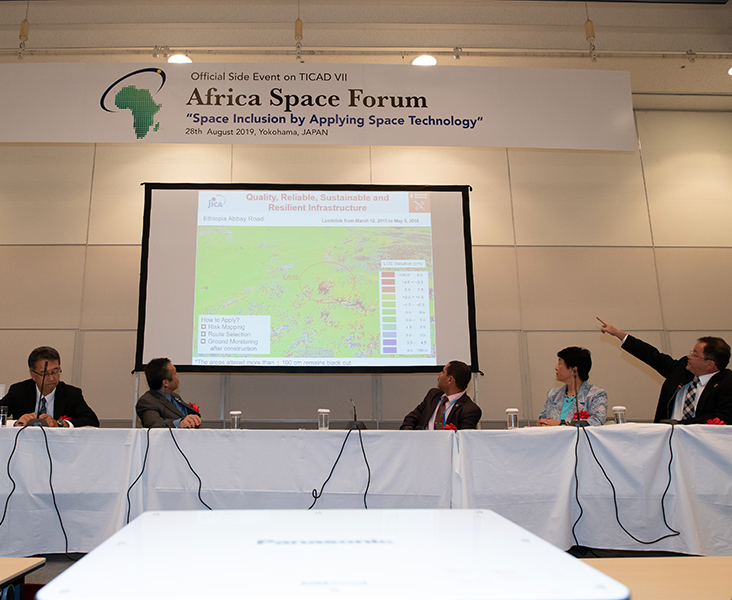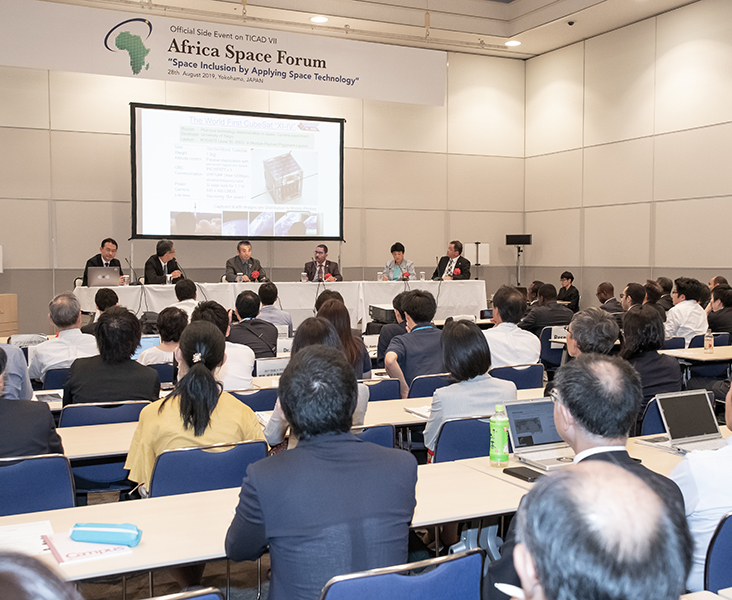Executive Summary
EXECUTIVE SUMMARY
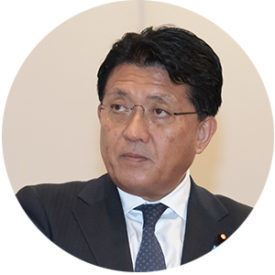
Takuya Hirai, Minister of State for Space Policy, Japan
Japan is promoting African space development to meet the United Nations Sustainable Development Goals (SDG). With the 2019 launch of the African Space Agency, we plan to facilitate more space collaboration with Africa, supporting the development, launch and operation of small satellites, which can aid agriculture, forest management, mining, and water-resource management. Japan will contribute academic and private-sector expertise, and provide launch opportunities using the KIBO Module of the ISS.
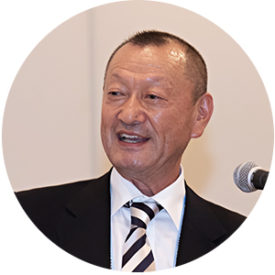
Tetsuro Yano, Chairman, Association of African Economy and Development
Today, Africa is ready for space development. At the opening of TICAD VII, Japanese prime minister Shinzo Abe talked about leveraging Japanese technology for the development of African countries. Japan is ready to help. The key for the successful space development in Africa is that African nations cooperate beyond the border.
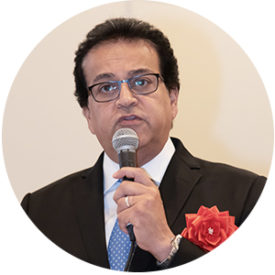
Khalid Atef Abdul Ghaffar, Minister of Higher Education and Scientific Research, Egypt
We are announcing the first joint space initiative between Egypt and Japan, as part of the African Development Satellite Initiative (ADSI). Space technology improves the African economy and quality of life by promoting sustainable use of resources, strong international partnerships, and opportunities for our people. It can help us address the challenges of poverty and food security, environmental degradation and pollution, climate change, and peace and security. The ADSI will facilitate knowledge sharing, and strengthen international cooperation. Also, as an outcome of TICAD VII, Egypt will launch a project with Japanese universities to build capacity among young African space scientists.
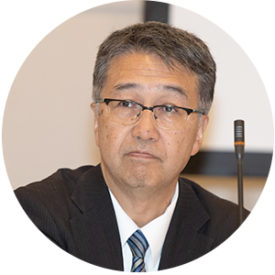
Shinichi Nakasuka, Department of Aeronautics and Astronautics, University of Tokyo
Micro, nano and pico satellites are game changers in space utilization. They can be developed quickly and cheaply, and applied to many fields. The University of Tokyo has established venture companies to further develop small-satellite technologies and transfer them to other countries. Another means of transferring technology and knowledge is the university consortium UNISEC Global.
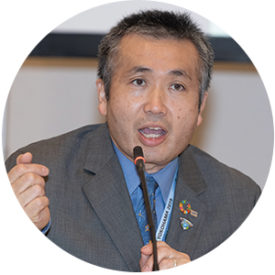
Koichi Wakata, Japanese Astronaut and Director General, Human Spaceflight Technology Directorate, JAXA
Space technology has raised the quality of life on Earth, particularly as it relates to the UN SDGs. JAXA’s ISS module KIBO allows the inexpensive deployment of small satellites, which has benefited many emerging space-faring nations, such as Kenya, Nigeria and Ghana, and in the fall of 2019, Egypt and Rwanda.
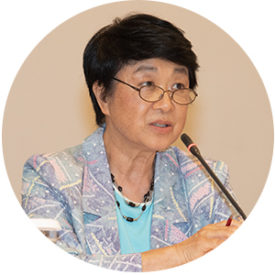
Chiaki Mukai, Japanese Astronaut and Senior Advisor to the Director General, JAXA
Japan and Africa are equal partners in using space assets to improve global health. Initiatives include mapping for polio eradication, monitoring air pollution, preventative medicine as a spin-off from space medicine and human space exploration, and the efficient use and re-use of limited natural resources as a spin-off of technology being developed for long-distance space travel.
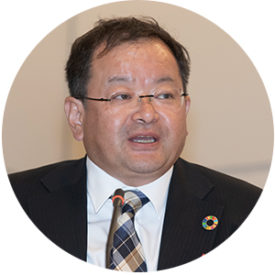
Kenichi Shishido, Director General of Rural Development Department, JICA
JICA proposed the JICA-JAXA SAR (Synthetic Aperture Radar) Platform to contribute to SDGs in the potential fields of IUU, Agriculture, and Infrastructure monitoring.
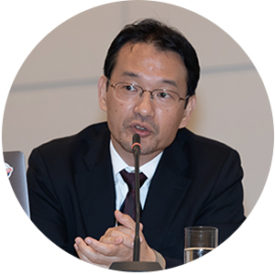
Mengu Cho, Kyushu Institute of Technology
Kyushu Institute of Technology’s English-language space-engineering program currently has 20 students from Africa. The institute works with African countries to develop and test satellites and train engineers.
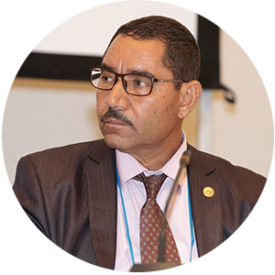
Mohamed Zahran, President, National Authority for Remote Sensing and Space Science, Egypt
Space science can help us prevent natural disasters, improve communication between rural areas, provide telemedicine, enhance food security, save our countries, and help each other.
Audience Questions
- Can small satellites be used to monitoring illegal fishing and poaching, which are a significant problem in Africa?
- How can we use satellite data to monitor agricultural productivity and help small-holder farmers?
- Can JAXA collaborate with the Atlantic International Research Institute on developing small satellites that will help improve agricultural productivity?
- Can satellite data be used in mineral exploration?
- How do we decide which countries to collaborate with on our national space programs?
Concluding Remarks (Mengu Cho)
There are many seed technologies that the Japanese government and universities can make available to our African partners, but in the end African countries have to build their own satellites, because they know better than anyone what they need. The more people enter the space sector, the more talent will come to the surface, and that is good for all of humankind, not just for Japan and Africa. I hope the Japan-Africa space collaboration will serve as a good example of working together to make the world a better place.

